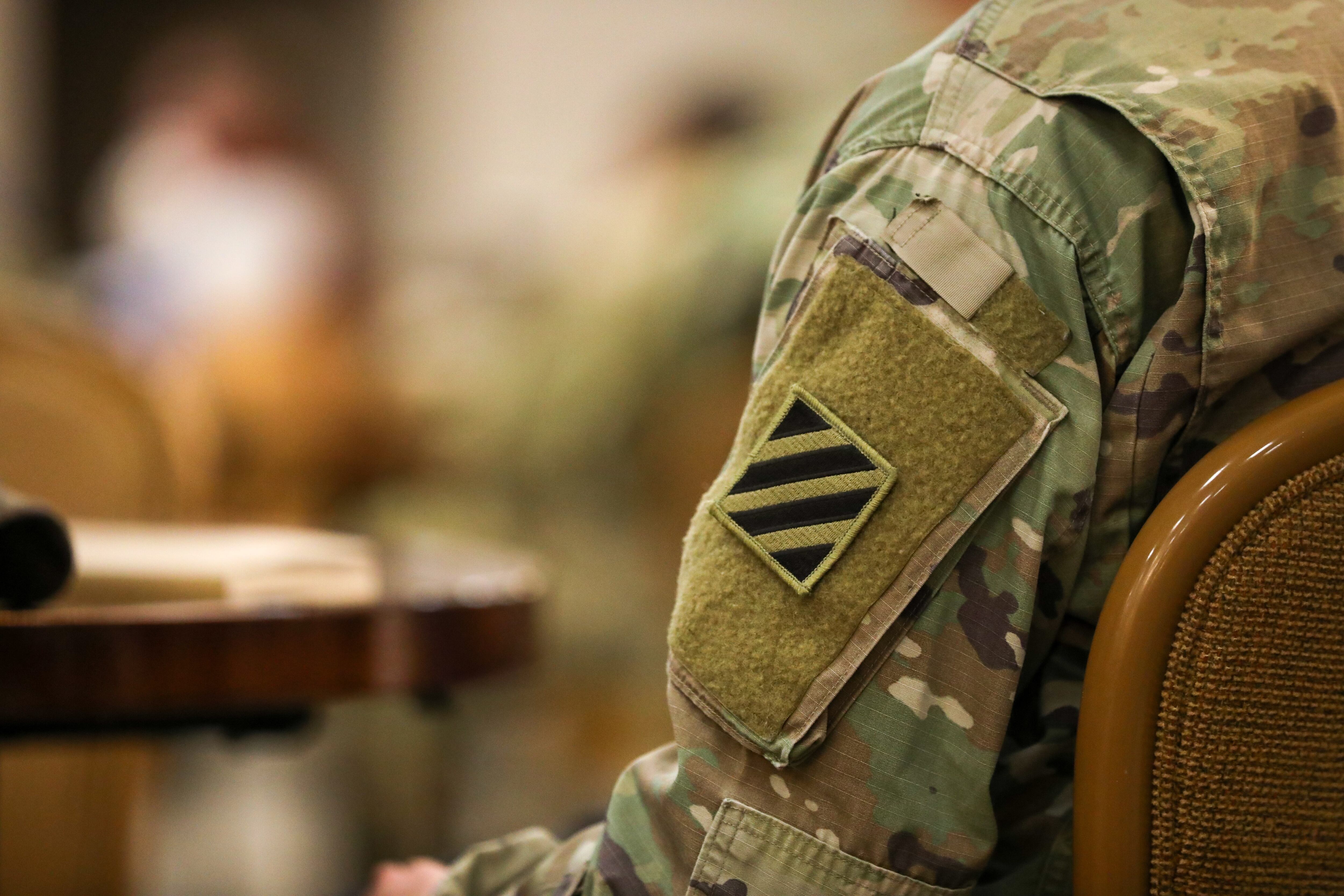An Army noncommissioned officer was shot and killed by a fellow soldier Monday morning at Fort Stewart, Georgia, in a building complex belonging to the 3rd Infantry Division’s 2nd Armored Brigade Combat Team.
The shooting happened shortly before 10:00 a.m., according to Fort Stewart garrison communications chief Kevin Larson. Law enforcement arrived on the scene at 10:04 a.m. at the building complex of the 2nd Armored Brigade Combat Team, 3rd Infantry Division and took the gunman into custody.
“There is no active threat to the community,” Larson added in a text message to Army Times.
The brigade’s top NCO, Command Sgt. Maj. Jaime Lopez, gathered troops from the impacted battalion and addressed them early Monday afternoon. Army Times is withholding the specific unit until after officials have completed death notifications to the deceased soldier’s family.
Lopez told the formation that the suspect was a soldier who brought a weapon into a unit building and shot an NCO, according to a soldier from the battalion who described the announcement to Army Times. It’s not clear whether the suspect intended to shoot additional troops.
Fort Stewart officials confirmed that emergency medics were sent to the scene to treat a shooting victim, but the victim “died in the incident.” The dead soldier’s identity has not yet been released due to pending notification of their family. No information on the identity of the shooting suspect has been released yet either, said Larson, who added that “the investigation is ongoing.”
The 2nd ABCT complex was “briefly locked down during the incident,” Larson said.
“Winn Army Community Hospital will make Behavioral Health Counseling available in response to today’s incident. Appointment can be made through the Soldiers’ assigned unit or by calling the main appointment line at 435-6633,” he said.
Two soldiers assigned to 2nd ABCT told Army Times that they did not receive messages from the post’s emergency alert system, instead learning of the shooting through panicked messages sent by colleagues in group message chats.
The post is the largest Army facility east of the Mississippi River and is home to the Army’s 3rd Infantry Division, which includes 1st and 2nd Armored Brigade Combat Teams, 3rd ID Sustainment Brigade, Division Artillery, Division Headquarters and Headquarters Battalion and 1st BN, 28th Light Infantry, according to the Army.
Between 1993 and 2019 there have been more than 20 shootings on U.S. military installations, according to a 2019 CNN article.
The deadliest of those incidents was on Nov. 5, 2009, when Army Maj. Nidal Malik Hasan, an Army psychiatrist, killed 13 people and an unborn child and wounded another 32 individuals at the Fort Hood, Texas Soldier Processing Center. A civilian police officer shot Hasan, who was later tried and received a death sentence for the crime.
Hasan remains in prison at the U.S. Disciplinary Barracks at Fort Leavenworth, Kansas awaiting execution.
In 2015, Army Times reported that victims of the attack received Purple Hearts or the equivalent civilian award, depending on their status.
On April 2, 2014, also at Fort Hood, Spc. Ivan Lopez killed three people and injured 16 others with his personal .45 caliber handgun. Lopez killed himself when confronted by a military police officer.
In late November, the second of two former soldiers pleaded guilty to charges stemming from the 2020 killing of a fellow soldier on Fort Stewart.
Jordan Brown, 21, pleaded guilty in federal court for his role in helping co-defendant, ex-soldier Byron Booker, 28, kill Spc. Austin Hawk on June 17, 2020, after the specialist had reported fellow soldiers for marijuana use.
All three were assigned to the 92nd Chemical Company, 83rd Chemical, Biological, Radiological and Nuclear Battalion on the installation, according to a Department of Justice statement.
Brown helped Booker get access to the barracks building where Hawk lived, according to court records. Booker then entered Hawk’s room near midnight and stabbed the specialist more than 40 times.
This is a developing story. Army Times will update it as more information becomes available.
Davis Winkie covers the Army for Military Times. He studied history at Vanderbilt and UNC-Chapel Hill, and served five years in the Army Guard. His investigations earned the Society of Professional Journalists' 2023 Sunshine Award and consecutive Military Reporters and Editors honors, among others. Davis was also a 2022 Livingston Awards finalist.





